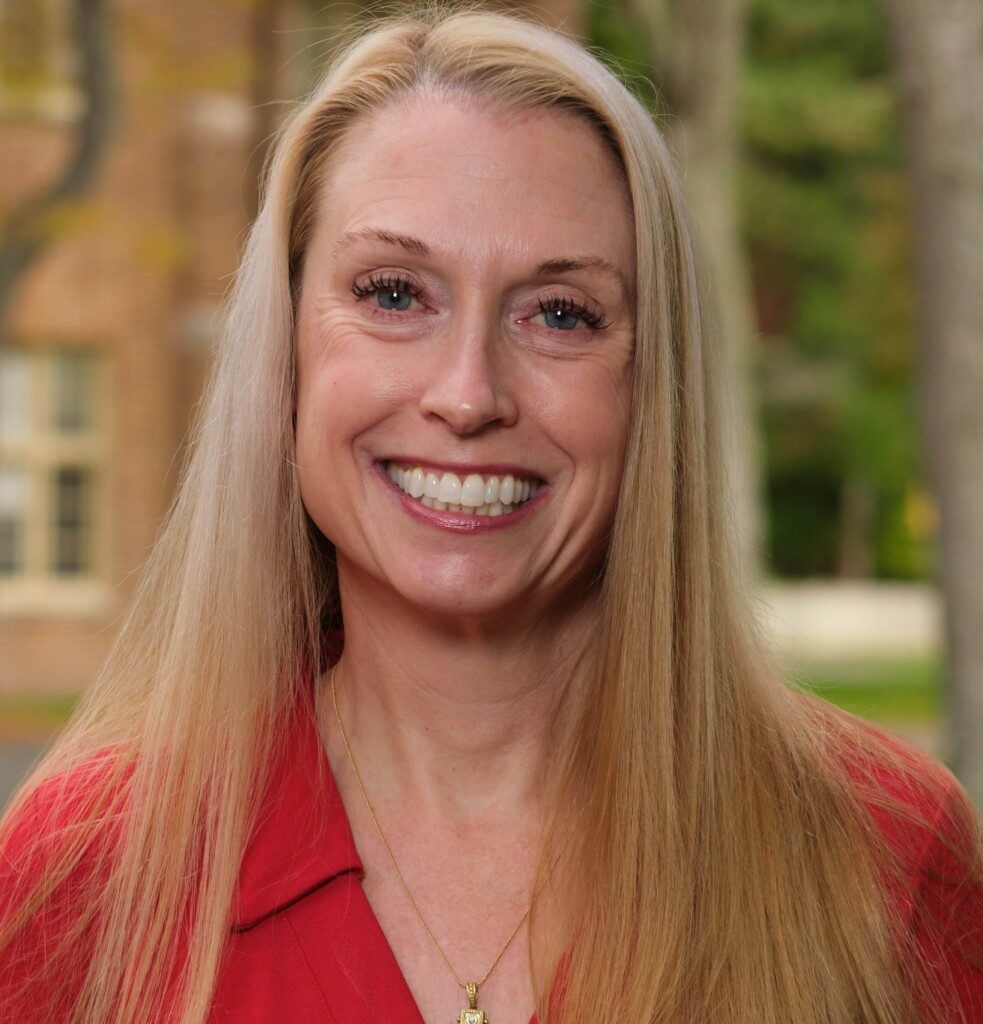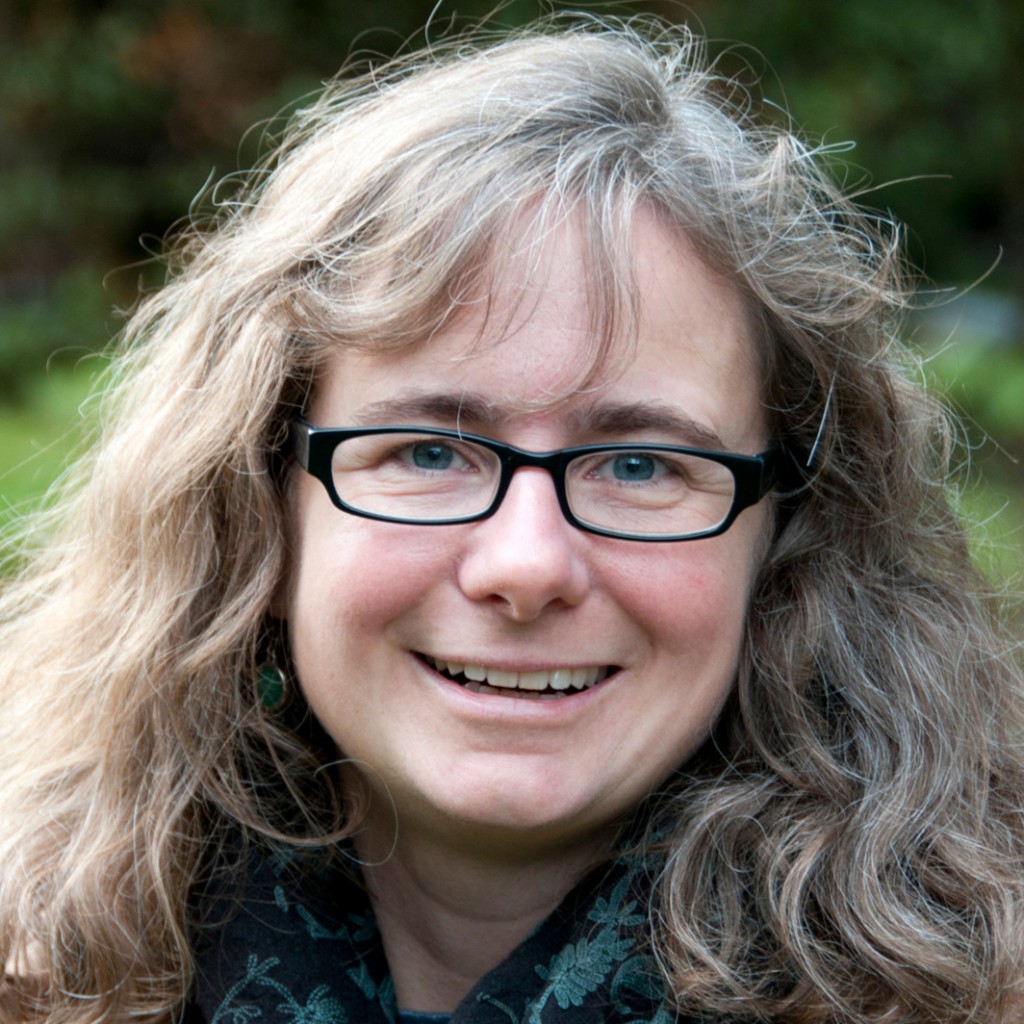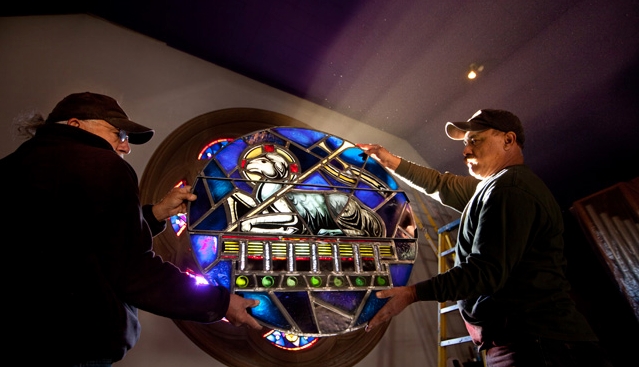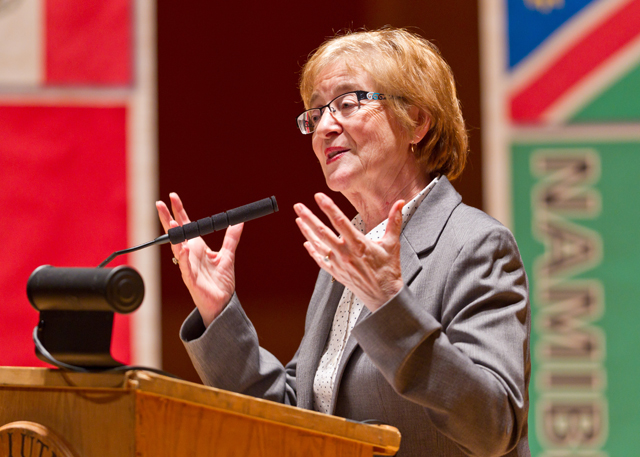Page 208 • (2,730 results in 0.024 seconds)
-

Holocaust, Genocide, and Human Rights Studies; the Seattle Holocaust Center for Humanity’s Educators for Change, and member of the Pacific Northwest Regional Committee for the United States Holocaust Memorial Museum. Interests All areas of Holocaust and Genocide studies Fun Facts Students know Dr. Griech-Polelle's interests revolve around caring for stray cats, feeding the crows and raccoons, thus driving her poor neighbors crazy. Service Holocaust Education Foundation - Summer 2014 Cleaned Jewish
-

flashes of inventiveness (when the impossible becomes doable) and more incremental change, such that subtle improvements in a product or process that makes things better. In either case, innovation raises the bar for how we live, think, and connect, and it has become an expectation and goal within business, government, university life, sports teams, entertainment, the performing arts, and most walks of life. All this sounds pretty good, but how do people or teams innovate? And what are the
-
Shelly Kurtz, co-founder of Giving Tech Labs and X4Impact Higher education institutions must evolve to anchor community-based approaches to solving complex social issues in an evolving democracy. This transformation challenge relates to the reimagining and organizing of liberal arts universities as leading delivery channels to social innovation in their communities, with industry, and as part of the global ecosystem of change makers. Hear how one university is approaching this work. (45 minutes
-

Seattle, on Duwamish land, and in Oaxaca, on Mixtec and Zapotec land. Mentor: Workshops and classes in nonfiction Statement: When I was ten years old, a friend’s father told me, “We are changed by every interaction we have in our lives. Every person you meet will change you in some way.” I listened to his words from the back seat of his huge sedan as we drove through the mountains, a nighttime Pacific forest visible through scratched windows. The magnitude of the idea settled over me as we moved past
-

national theatre honor society, Alpha Psi Omega, the production is entirely student run and led under the direction of Ali Rose Schultz ’14. More than 30 students are involved onstage and off. As director, Schultz is responsible for selecting and assembling designers and actors, running the rehearsal process, and assisting the design process. Schultz chose this production for several reasons: the multifaceted and relatable content, her passion for theatre that inspires social change, and her
-
secure during therapy sessions. “She truly is someone who desires to understand people, she wants to make significant and meaningful change in the lives of people who sometimes are missed in society,” said David Ward, assistant professor of marriage and family therapy. In the past four years, a PLU student has received the award three times. “It’s a validation for our belief that we’re providing students with quality education,” Ward said. “We continue to attract student who will have an impact in
-
new revenue stream from what use to be reliable, traditional advertising dollars is shrinking. The business is trying to figure out where the money will come from. None of the panelists had a clear answer. It may come from a click-per-view mechanism, online subscription, targeted online advertising and personalizing news homepages for the reader or a number of other options. But a change will take place that stabilizes the industry, Zeeck said. These changes were going to happen anyway. But
-

remodeling the Chapel comes up, the student chorus is always the same: “Please don’t change the feel of the Chapel!” One would think with its bare concrete floors and creaky benches that the students would want new and modern furnishings. But it is the medieval ambiance of the chapel that seems to lend the space a spiritual quality. And well it should. The Chapel and the Rose Window have seen the course of human life as the generations of Lutes have come and moved on to other vocations in the world. The
-

wing you come from.” But it isn’t just a matter of legislation and blame can’t be placed solely on corporations and governments, Barlow said. The fault lies with all of us, and all of us buying into “the myth of abundance.” First our attitude toward water needs to change, and then we need to see how water relates to other issues, such as education or political exploitation. “Water is the great teacher. It opens everything,” Barlow said. “Dare I say, we have to start seeing water as sacred.” Read
-

coming to campus. VWS was conceived and is co-directed by English professors Jason Skipper and Rick Barot. When both began teaching at PLU, they started the series as a way for authors to share experiences with their readers in person. “Literature can change you, and often it does,” said Skipper. “My hope was to create a Visiting Writer Series where at each event this was a possibility for everyone in the room.” Since the series began, famous writers such as Mary Oliver, Brian Teare and Peter Geye
Do you have any feedback for us? If so, feel free to use our Feedback Form.


